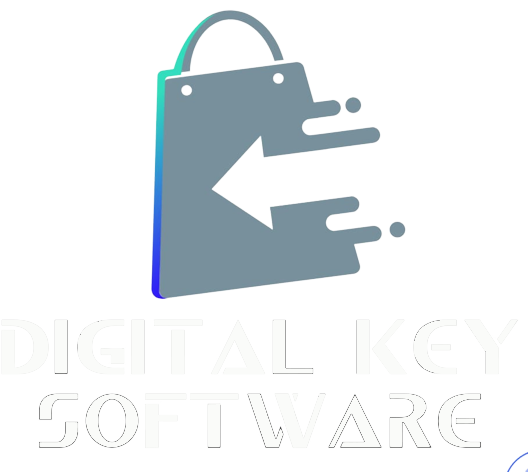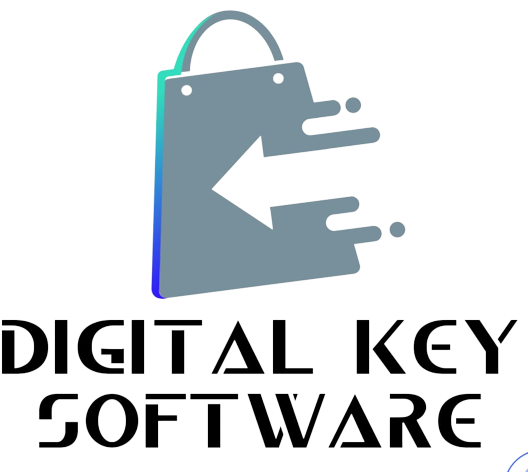How to Protect Your Devices from Cyber Threats in 2025
As we step into 2025, the digital landscape continues to evolve, and so do the threats that lurk online. Cybercriminals are constantly finding new ways to exploit vulnerabilities, making it more important than ever to stay vigilant about cybersecurity. Whether you’re using a smartphone, laptop, or desktop, protecting your devices from cyber threats is essential to safeguarding your personal information, business data, and privacy.
At Digital Key Software, we understand the importance of keeping your devices safe in today’s increasingly connected world. In this blog, we’ll guide you through the essential steps to protect your devices from the latest cyber threats in 2025.
1. Install and Update Antivirus Software
One of the most effective ways to protect your devices from cyber threats is by installing reliable antivirus software. Antivirus programs are designed to detect, prevent, and remove malicious software such as viruses, malware, spyware, and ransomware. In 2025, cyber threats are becoming more sophisticated, so having up-to-date antivirus protection is essential to stay ahead of cybercriminals.
Make sure to choose a reputable antivirus provider and regularly update the software to keep up with emerging threats. Many antivirus programs offer real-time protection and automatic updates, ensuring your devices are always equipped with the latest defenses.
2. Use Strong and Unique Passwords
Passwords are the first line of defense against unauthorized access to your devices and online accounts. In 2025, weak or reused passwords remain a common vulnerability that hackers exploit. To protect yourself, create strong, unique passwords for each of your accounts. A strong password should include a mix of uppercase and lowercase letters, numbers, and special characters.
Avoid using easily guessable information like your name, birthdate, or common words. Additionally, consider using a password manager to securely store and generate complex passwords for all your accounts. This eliminates the need to remember multiple passwords while ensuring your accounts are protected.
3. Enable Two-Factor Authentication (2FA)
Two-factor authentication (2FA) adds an extra layer of security to your accounts by requiring a second form of verification beyond just your password. This could be a text message with a code, an authentication app, or even biometric recognition like fingerprint or facial scans.
Enabling 2FA on your most important accounts—such as email, banking, and social media—significantly reduces the risk of unauthorized access, even if your password is compromised.
4. Be Cautious of Phishing Scams
Phishing attacks continue to be one of the most common ways cybercriminals gain access to sensitive information. In a phishing attack, scammers disguise themselves as legitimate entities (like banks or tech support) and trick you into providing personal information or downloading malicious software.
To avoid falling victim to phishing scams in 2025, be cautious when receiving unsolicited emails, messages, or phone calls. Always verify the source before clicking on links or providing sensitive information. Be especially wary of requests for financial details or login credentials.
5. Keep Your Software and Devices Updated
Software updates are not just about new features—they also include important security patches that protect your devices from known vulnerabilities. In 2025, hackers are constantly discovering new exploits, and software developers are working to address them through updates.
Enable automatic updates on your devices and regularly check for updates on any apps or software you use. Whether it’s your operating system, web browser, or antivirus software, staying current with updates ensures that your devices are protected from the latest security threats.
6. Use a Virtual Private Network (VPN)
A Virtual Private Network (VPN) is an essential tool for protecting your online activities and privacy. When you use a VPN, it encrypts your internet connection, making it more difficult for hackers to intercept your data. This is especially important when using public Wi-Fi networks, such as in cafes or airports, where cybercriminals may attempt to access your device.
A VPN also helps mask your IP address, making it harder for third parties to track your online behavior and location. Whether you’re browsing the web, streaming content, or accessing sensitive information, using a VPN adds an extra layer of protection to your devices in 2025.
7. Be Mindful of App Permissions
Mobile apps and software can access a wide range of data on your device, from your camera to your location and contacts. In 2025, many apps are designed to collect more data than they need, raising concerns about privacy and security.
When installing apps, review the permissions they request and only grant access to what is absolutely necessary. If an app asks for access to information or features that don’t align with its purpose, consider finding an alternative. Regularly audit the apps on your device and revoke permissions for those you no longer use.
8. Backup Your Data Regularly
Data loss can happen in many ways—whether it’s due to a cyberattack, device malfunction, or accidental deletion. To ensure you don’t lose important files, it’s essential to regularly back up your data.
Use a combination of cloud storage services and external hard drives to back up your files. In the event of a ransomware attack or system failure, having a secure backup means you can restore your data without paying a ransom or risking permanent loss.
9. Educate Yourself and Your Team
Cybersecurity is an ongoing process, and the more you know, the better equipped you’ll be to avoid threats. Take the time to educate yourself about common cyber threats, best practices for online safety, and how to spot suspicious activities.
For businesses, it’s crucial to train employees on safe practices and establish clear protocols for handling sensitive data. Human error is often the weakest link in cybersecurity, so keeping your team informed can significantly reduce the risk of a successful attack.
Conclusion
As cyber threats become more advanced in 2025, protecting your devices requires a proactive and multi-layered approach. By using antivirus software, strong passwords, two-factor authentication, and other best practices, you can safeguard your devices and personal information from cybercriminals. At Digital Key Software, we are committed to helping you stay secure by providing the tools and resources you need to protect yourself online.
Don’t wait for an attack to happen—take action now to keep your devices safe and secure in 2025 and beyond. If you need help choosing the right antivirus protection for your devices, feel free to reach out to us. We’re here to help you stay safe in the digital world!


Leave a Reply